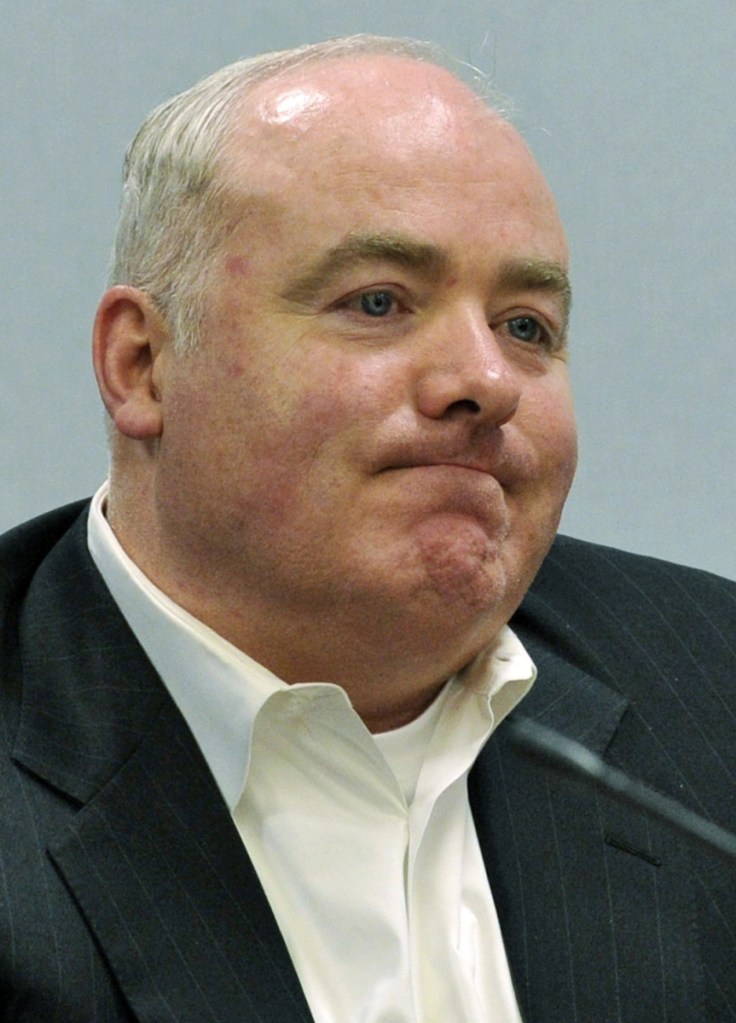HARTFORD, Conn. – In a stunning reversal, the Connecticut Supreme Court on Friday vacated Kennedy cousin Michael Skakel’s murder conviction and ordered a new trial in connection with a 1975 killing in wealthy Greenwich.
The court issued a 4-3 ruling Friday that Skakel’s trial attorney, Michael Sherman, failed to present evidence of an alibi. The decision reversed the high court’s previous ruling in December 2016 that reinstated Skakel’s conviction after a lower court ordered a new trial, citing mistakes by Sherman.
Skakel, a nephew of Robert F. Kennedy’s widow, Ethel Kennedy, was convicted of murder in 2002 in the bludgeoning death of Martha Moxley in their wealthy Greenwich neighborhood in 1975, when they were teenagers. He was sentenced to 20 years to life in prison, but was freed on $1.2 million bail after the lower court overturned his murder conviction in 2013.
The case has drawn international attention because of the Kennedy name, Skakel’s rich family, numerous theories about who killed Moxley and the brutal way in which she died. Several other people, including Skakel’s brother Tommy Skakel, have been mentioned as possible killers.
Skakel’s appellate lawyer, Hubert Santos, had asked the Supreme Court to reconsider its 2016 ruling, resulting in Friday’s decision.
Santos argued that Sherman made poor decisions, including not focusing on Skakel’s brother as a possible suspect and failing to attempt to contact an alibi witness. Santos said Skakel was several miles away from the crime scene watching a Monty Python movie with friends when Moxley was bludgeoned with a golf club.
Santos also has said there was no physical evidence or eyewitnesses linking Skakel to the killing.
Skakel attended The Elan School, a private boarding school in Maine, as a teenager. During his trial, former classmates at Elan testified that Skakel had confessed to them while at school. Elan closed in 2011.
Sherman has defended his work, and state prosecutors have argued he did an adequate job. The Associated Press left a message with him Friday seeking comment on the ruling.
Writing for the majority, Justice Richard Palmer said Skakel was prejudiced in the case by Sherman’s failure to obtain alibi testimony from witness Denis Ossorio.
“Without Ossorio’s testimony, the state was able to attack the petitioner’s (Skakel’s) alibi – a complete alibi for the time period during which it is highly likely that the victim was murdered – as part of a Skakel family conspiracy to cover up the petitioner’s involvement in the victim’s murder,” Palmer wrote.
Moxley’s brother, John Moxley, told the AP that he was disappointed with the ruling and that it was too soon to say what the family would want next in the case.
“I don’t know what the next steps are. My mom is getting older. I just don’t think she has the strength to go with this,” said Moxley, 59.
He said he would not trade places with Skakel for anything.
“He’ll be in jail for the rest of his life,” Moxley said. “He may not be physically in jail. He may be walking the streets, but he’ll be in hell at some point.”
Send questions/comments to the editors.


